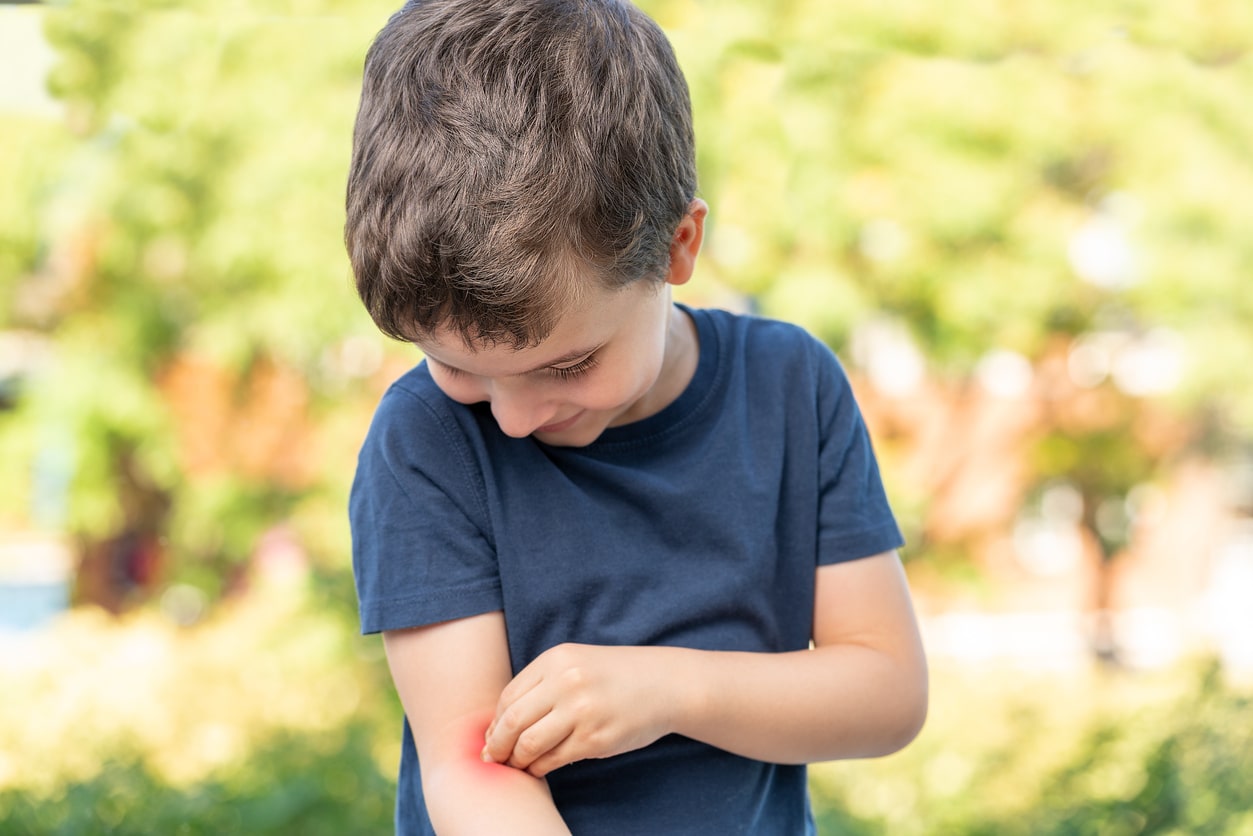Unsure of how you should treat bee stings and bug bites in kids? KidsStreet Urgent Care can help!
Bee Stings In Children
Symptoms Of Bee Stings
If your child has been stung by a bee, the bee venom will cause the following symptoms:
- Instant sharp pain in the sting site
- Immediate swelling of the area
- Redness around the injection site
If your child begins to have trouble breathing or swelling of the throat, they may be allergic to bee stings. Call 911 if your child is having a severe allergic reaction.
Treating Bee Stings In Children
When treating bee stings in children, it is important to follow some standard steps. The steps to treat a bee sting include:
- Remove the stinger
- After you have removed the stinger, wash the affected arm or leg with soap and water
- Apply a cold compress to the area
It may also be helpful to administer over-the-counter medication to help with any pain.
Preventing Bee Stings
Children who spend a lot of time outside are more susceptible to being stung, specifically during warmer months. To prevent bee stings, you can try these best practices:
- When your child is playing outside, be hyper-vigilant of any bees you see flying around and remove your child from the area.
- Keep children away from flowers.
- Do not dress your child in bright colors or floral prints.
- Teach your child not to swat at bees.
Bug Bites In Kids
Types Of Bug Bites
There are many different kinds of insects that may bite or sting your children while they are playing outside. The most common bug bites include:
- Mosquito bites
- Ant bites
- Spider bites
- Tick bites
Symptoms Of Bug Bites
Reactions to an insect bite vary on the type of insect, and the symptoms may range from mild to severe. The most common symptoms of bug bites include:
- A small bump on the skin
- Itching
- Swelling
- Redness
Signs of an allergic reaction to a bug bite include:
- Swelling of the tongue, lips, or throat
- Hives
- Fever
- Fainting
- Dizziness
- Difficulty breathing or wheezing
- Coughing
- Headache
- Vomiting
If your child is having a severe allergic reaction to a bug bite, seek emergency medical care immediately.
Treatment Options
Best practices for treating bug bites in kids include:
- Clean the bite with soap and water
- Apply a cold compress to the area
- Apply hydrocortisone cream to itchy bites
- If you don’t have hydrocortisone cream, apply a paste-like mixture of baking soda and water to itchy bites.
- Administer antihistamines (Children’s Benadryl, etc.)
Need help treating your child’s big bites? KidsStreet Urgent Care can help! We offer bug bite treatment in our urgent care services for kids.
Preventing Bug Bites
Bug bites are not entirely preventable, specifically if your child spends a lot of time outside. However, it is important that you try to prevent bug bites as much as possible, especially if your child is allergic to any bugs. Prevention methods include:
- Use insect repellent sprays
- Avoid standing water
- Dress your child in full-coverage clothing
- Avoid flowery patterns on clothing
- Don’t swat at flying insects
Turn To KidsStreet Urgent Care
Is your child having a mild reaction to bee stings or bug bites? KidsStreet Urgent Care is here to help them heal and feel better, fast! To visit a clinic, register online. You’ll be able to wait in your car or at home until we’re ready to see you.
Walk-ins are always welcome, but please be aware that registering online reduces in-clinic wait times. Walk-ins are added to the same queue as those who register online.

